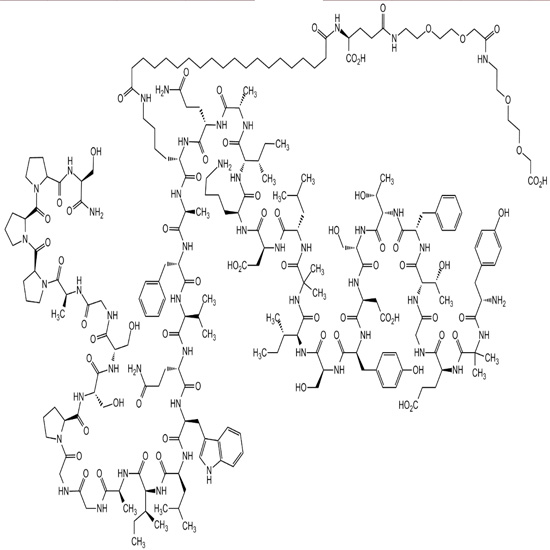


The most common side effects include nausea, vomiting, diarrhea, decreased appetite, constipation, upper abdominal discomfort, and abdominal pain.
Glucagon-like peptide-1 (GLP-1) and glucose-dependent insulinotropic polypeptide (GIP) are hormones involved in blood-sugar control. After a person has eaten, these hormones are secreted by cells of the intestines, and in turn cause the secretion of insulin. Tirzepatide is a long-acting GIP-analogue that activates both the GLP-1 and GIP receptors, leading to improved blood-sugar control.
Tirzepatide was approved for treatment of diabetes in the United States in May 2022, in the European Union in September 2022, in Canada in November 2022, and in Australia in December 2022. The US Food and Drug Administration (FDA) considers it to be a first-in-class medication. It was approved by the FDA for weight loss in November 2023, under the brand name Zepbound. In November 2023, the UK Medicines and Healthcare products Regulatory Agency revised the indication for tirzepatide to include treatment for weight loss.
In April 2024, the Food and Drug Administration’s drug shortage database indicates most doses of Zepbound and diabetes counterpart Mounjaro will be in short supply through the second quarter 2024.[23]and for weight loss. Tirzepatide is administered via subcutaneous injections (under the skin).



